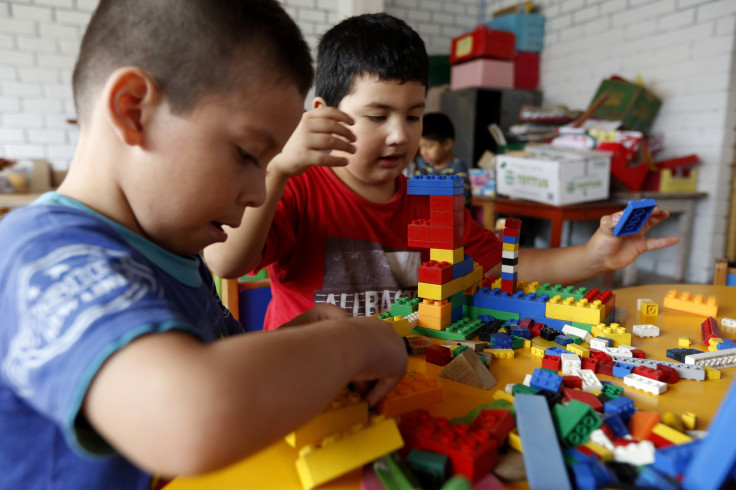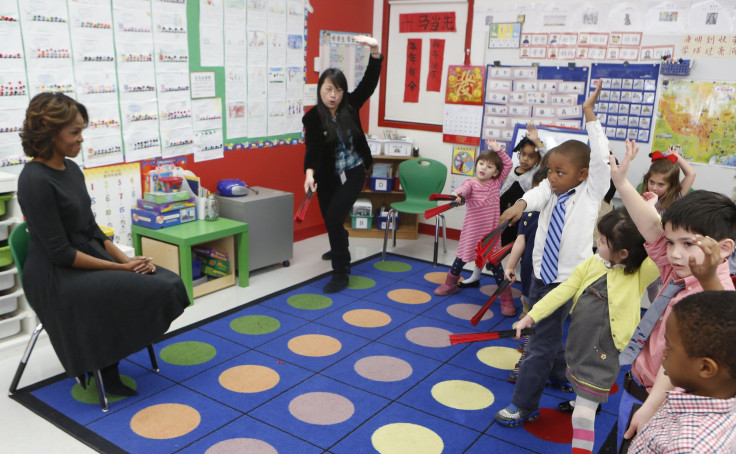Don’t Want Children To Cheat? Praise Them For Doing Well, Not Being Smart

If you tell a child as young as three years old that he or she is smart or even has a reputation for being smart, the child is more likely to cheat, two new studies have found. The studies were conducted by researchers in Canada, China and the United States and considered behavior of preschoolers.
One of the studies’ four co-authors (both studies have the same four authors) Kang Lee, who is a professor at the University of Toronto, said in a statement Tuesday that praise for children is one of the most common forms of reward used by parents and teachers, but it can backfire when used wrongly.
“Giving children (the) wrong kind of praise makes them dishonest,” Lee said in the statement.
One of the studies, published Tuesday in the journal Psychological Science, is titled “Praising Young Children for Being Smart Promotes Cheating.” In the study, researchers looked at 300 preschool children in eastern China, of which 150 were between 3 and 4 years old (71 boys, 79 girls) and the other 150 were between 5 and 6 years of age (78 boys, 72 girls).
The children were made to play a simple guessing game using cards, in which the participants had the opportunity to peek at the cards and cheat. On guessing correctly, there were one of three responses — praise for being smart (“You are so smart”), being told they performed well (“You did very well this time”) and no sort of praise whatsoever. Each of the three responses was given to 50 children each, all of whom had been instructed not to peek at the cards.
The experiment was designed such that every child would guess correctly on the first two of the five attempts, and get the remaining three wrong. During the sixth attempt, the experimenter left the room for one minute, after reminding the children not to peek and the children’s behavior was remotely monitored using a concealed camera.
Over 60 percent of all children who had been praised earlier were found to have cheated, with a higher number of 3-year-olds cheating than 5-year-olds. Boys who had been praised were also found to be more likely to cheat than their girl counterparts. And breaking up the numbers by age or gender didn’t yield much difference between the two groups that were either mildly praised or weren’t praised at all.
In the other study, titled “Telling young children they have a reputation for being smart promotes cheating” and appearing in the journal Developmental Science, the researchers performed similar tests on 323 children aged three and 5. Except, in this study, the children were either told they had a reputation for being smart, or a reputation that had nothing to do with being smart or otherwise, or nothing about their reputation.
The results they found were strikingly similar to the first study. A higher number of 3-year-olds were found to be cheating from the first group than the corresponding 5-year-olds, and boys cheated more than girls did.

“Praise is more complex than it seems. Praising a child’s ability implies that the specific behavior that is commented on stems from stable traits related to one’s ability, such as smartness. This is different than other forms of praise, such as praising specific behaviors or praising effort,” Lee said in the statement.
Li Zhao, a professor at Hangzhou Normal University in China and a co-author of the papers, said children who are praised for being smart “feel pressure to perform well in order to live up to others’ expectations, even if they need to cheat to do so.” She added that adults needed to learn praising children in a way that didn’t promote dishonest behavior.
“We want to encourage children, we want them to feel good about themselves. But these studies show we must learn to give children the right kinds of praise, such as praising specific behavior. Only in this way, will praise have the intended positive outcomes,” she said.
© Copyright IBTimes 2025. All rights reserved.





















